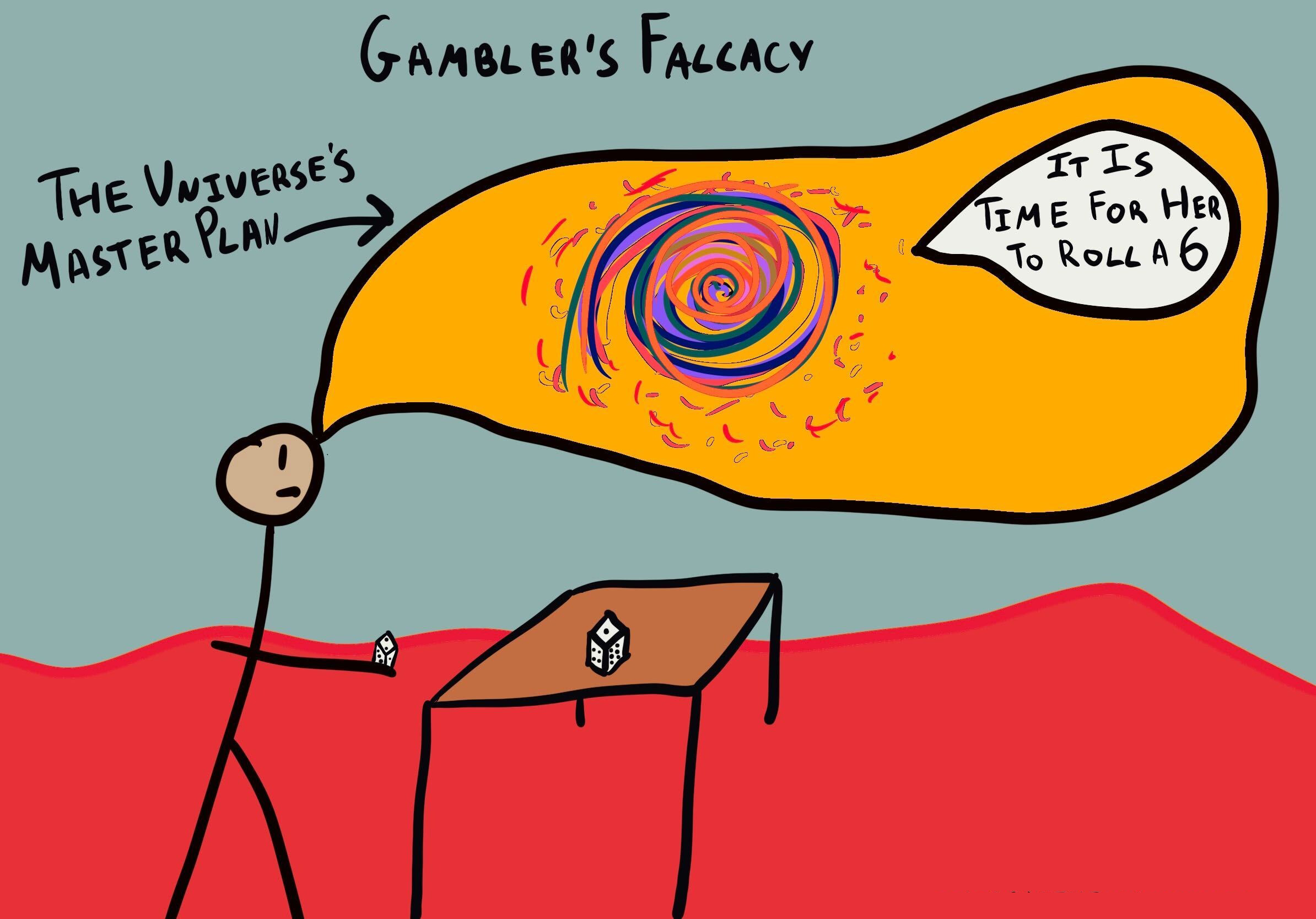The gambler’s fallacy is a cognitive bias that occurs when individuals believe that the likelihood of a particular event occurring in the future is influenced by previous, unrelated events. In essence, people mistakenly think that past outcomes will affect future probabilities, particularly in games of chance.
Explanations:
The gambler’s fallacy is rooted in a misunderstanding of probability. People often believe that if a certain event has not happened for a while, it becomes “due” or more likely to occur in the near future, which is not necessarily true for independent events.
Examples:
Coin Flips: Believing that a coin is more likely to land heads after a series of consecutive tails, even though each flip is independent.
Lotteries: Thinking that certain numbers or combinations are “due” to win in a lottery because they haven’t appeared recently.
Casino Games: Assuming that a particular roulette number is more likely to come up because it hasn’t been chosen in many spins.
Solutions:
Understanding Probability: Learn about the concept of independent events and understand that past outcomes do not affect future probabilities in situations where each event is unrelated.
Statistical Literacy: Develop statistical literacy to make informed decisions and avoid relying on the gambler’s fallacy in games of chance.
Randomness Awareness: Be aware of the role of randomness in events and decisions, and avoid making assumptions based on past outcomes.
Strategic Thinking: If applicable, use strategies or systems that are based on sound principles rather than relying on the gambler’s fallacy.
Addressing the gambler’s fallacy involves recognizing the error in assuming that past outcomes influence future probabilities. By understanding the independence of events and making decisions based on sound principles, individuals can avoid this cognitive bias in situations involving chance.
